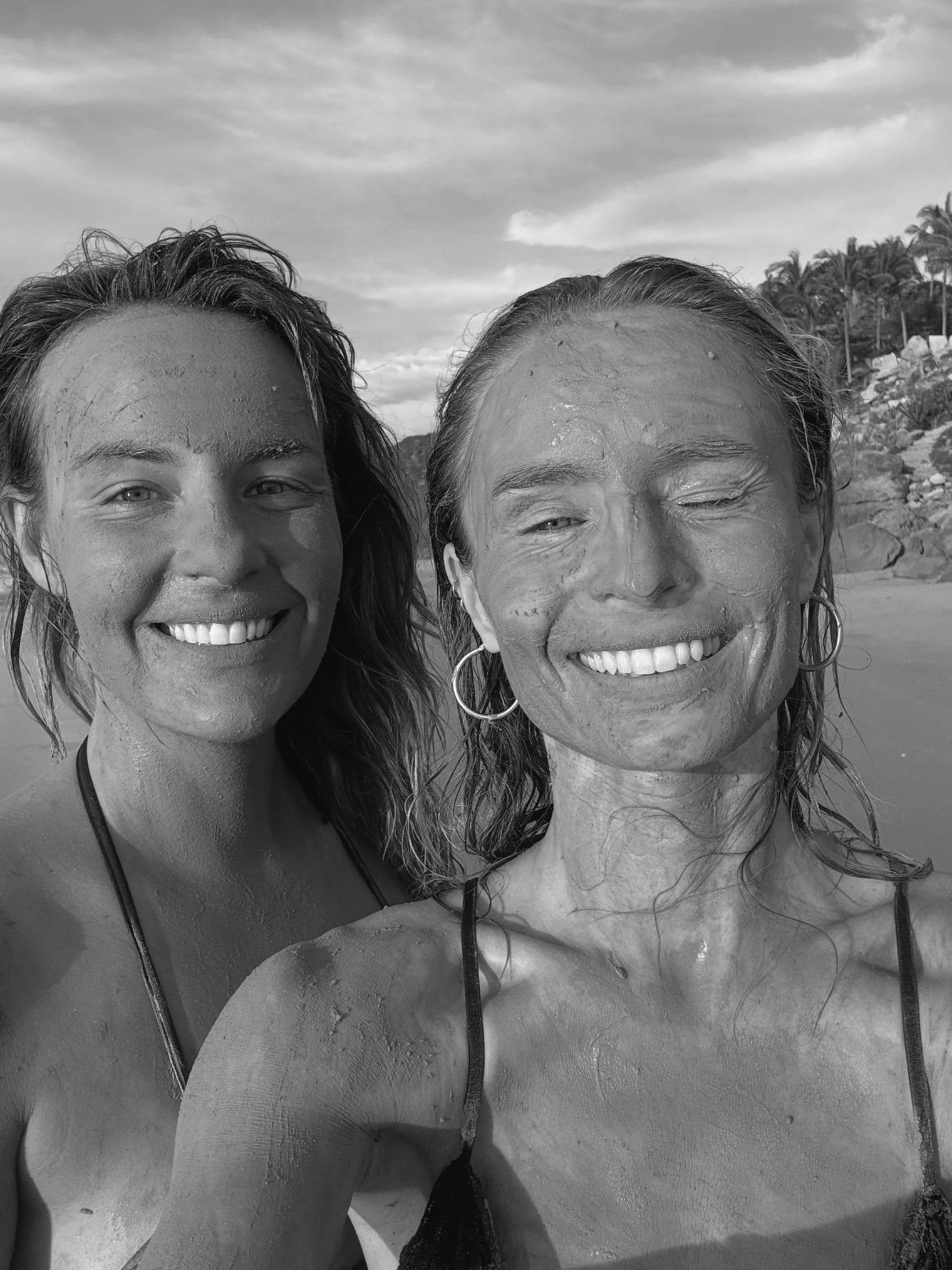I'm not judging Botox. I've tried it myself. After passing 30, I realised that ageism is a real thing and we do receive a lot of external pressure to maintain an unrealistic "youthful" appearance. I don’t want to look 20, I’m 34, but I do want to look and feel like a healthy 34 year old, and to know that I’m taking the best care of the largest organ in my body.
While botox, dysport and other injectables aimed at paralyzing the facial muscles, combat cosmetic symptoms of ageing (namely wrinkles, with inconclusive evidence around skin tone and texture), (1) they have not been shown to support the skin’s cellular health and longevity. Your skin's cellular health is what’s most important to consider when it comes to healthy ageing.
Even with botox, if your skin is being exposed to; (2)
- Harsh temperatures and climatic changes
- Excessive sunlight without sun protective measures
- Excessively dry conditions without moisturising
- Other lifestyle stressors including lack of sleep and exercise, poor diet, and exposure to stress, alcohol or smoking
you will more likely than not be experiencing skin cellular damage and premature skin ageing. UV exposure alone is thought to account for 80% of premature skin aging.
Externally this can look like skin thinning, loss of elasticity and tone, roughness, dryness, discolouration, deep wrinkle formation, (2) and exacerbation of inflammatory skin conditions like acne, dermatitis and itching skin (pruritis). (5)
On a cellular level, this can mean skin barrier dysfunction, and inflamed, sensitised and itching skin that doesn't function at its best capacity.
And what we're now beginning to see is that poor skin quality is also reflecting on a deeper level in our bodies. (2) This is discussed further in “Biohacking with Skincare”.
This is where comprehensive skincare comes in.
On top of making healthy lifestyle choices and using adequate sun protective measures, we recommend using daily skincare for the whole body, that is focused on building skin health and resilience from the ground up.
At Radical Botanics we recommend looking for the following qualities in your personal care products;
- Natural and organic ingredients to provide the benefits without the chemical load. This is specifically a cause for concern if you’re using a few products together. While in most individual products, potentially harmful ingredients are present in carefully restricted amounts to be deemed sage. If you’re using more than one product it can result in being exposed to the same synthetic chemical in different products, causing an “additive effect”, and skin toxicity reactions. (3).
- Senolytics - that have the capacity to reduce inflammation, cellular ageing, and help maintain cellular function for longer. (4)
- Humectants - compounds that attract and retain water, to improve and prolong hydration, making the skin more resilient to both dry and sun exposed conditions.
- Ceramides - that reinforce the skincare barrier. (5)
- Antioxidants (including vitamins and polyphenols) - to support the skin's own UV protective and reparation capacity. (2)
- Plant oils and extracts - that feed the skin with natural vitamins, minerals and peptides, and, based on the scientific concept of Xenohormesis, transfer their environmental protective adaptions to your skin, allowing it to build it's own resilience. (6)
A few other considerations we advise when choosing your skincare are as follows;
- Be wary of mixing too many products, as this can result in ingredients between products reacting and causing adverse skin reactions, named “the cocktail effect”. (3)
- Take caution, especially if you're an outdoorsy person, of using skincare or undergoing skin treatments that increase sun sensitivity, or cause any temporary damage to the skin barrier, if you're not planning to adhere to the recommended after care and down time.
- Try to find skincare that uses their active ingredients in clinically proven amounts, to ensure effectiveness.
As always, this article has been written for educational purposes only, and is not intended to be used as medical advice.
Written by Ingrid van den Berg, Director and Founder of Radical Botanics Pty Ltd.
References
- Rahman, E., Rao, P., Philipp-Dormston, W., 2024 “Intraderman Botulinum Toxin A on Skin Quality and Facial Rejuvination: A Systematic Review and Meta-Analysis” International Open Access Journal of the American Society of Plastic Surgeons, 12 (8) https://pmc.ncbi.nlm.nih.gov/articles/PMC11343530/
- Shanbhag, S., Nayak, A., Narayan, R., 2019 “Anti-aging and Sunscreens: Paradigm Shift in Cosmetics” Advanced Pharmaceutical Bulletin, 1:9 (3): 348-359 https://pmc.ncbi.nlm.nih.gov/articles/PMC6773941/
- Panico, A., Serio, F., Bagordo, F., 2019 “Skin safety and health prevention: an overview of checmicals in cosmetic products”, Journal of Preventative Medicine and Hygeine 29;90 (1): E50-E57 https://pmc.ncbi.nlm.nih.gov/articles/PMC6477564/
- Hubert, J,. Kotland, A,. Henes, B., Poigny, S., & Wandrey., F. (2022) Deciphering the Phytochemical Profile of an Alpine Rose (Rhododendron ferrugineum L.) Leaf Extract for a Better Understanding of Its Senolytic and Skin-Rejuvenation Effects. Cosmetics. 9(2):37. https://doi.org/10.3390/cosmetics9020037
- Chang, AS., Chen, S., Osterberg, L., 2018 “A daily skincare routine with a unique ceramide and filaggrin formulation rapidly improves chronic xerosis, pruritusm and quality of life in older adults” Geriatric Nursing, Volume 39, Issue 1, Pages 24-28 https://www.sciencedirect.com/science/article/abs/pii/S0197457217301180
- Hooper, P., Hooper, P., Tytell, M., 2010 “Xenohormesis: health benefits from an eon of plant stress response evolution” Cell Stress and Chaperones, Vol 15, Issue 6, Pges 761-770 https://www.sciencedirect.com/science/article/pii/S1355814523010544
